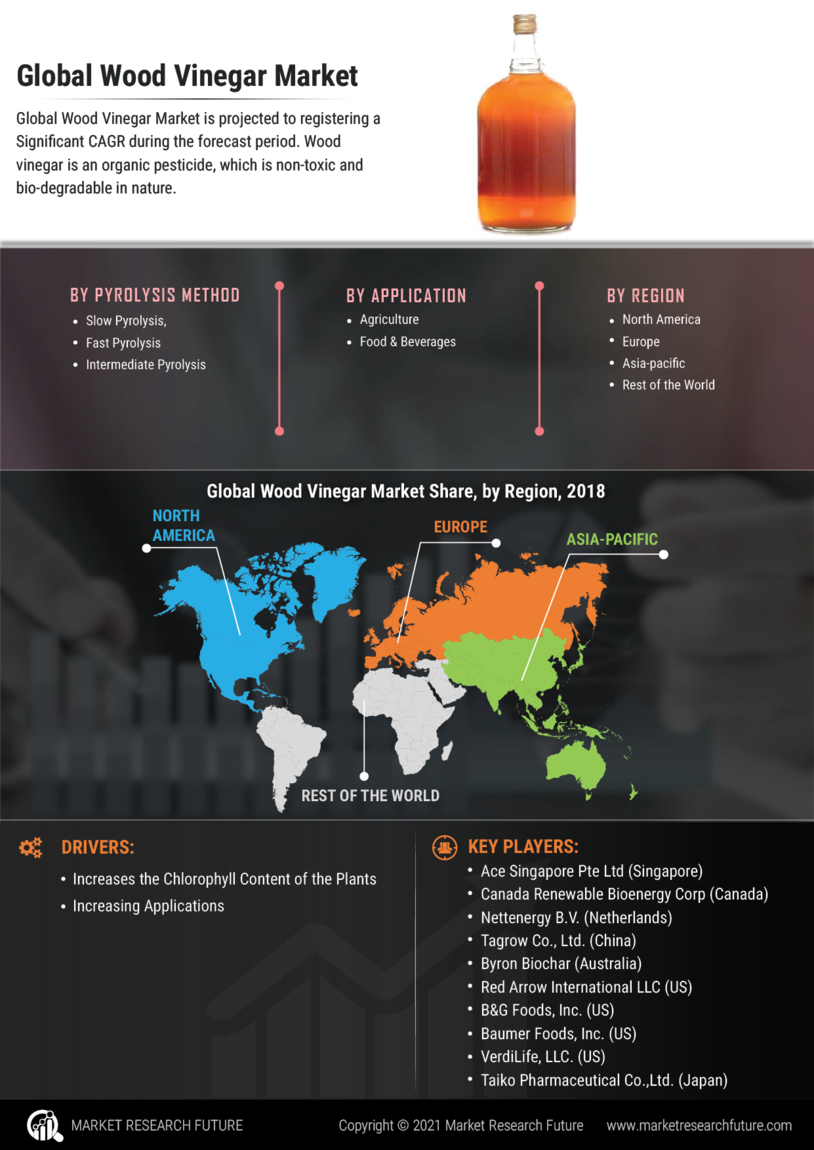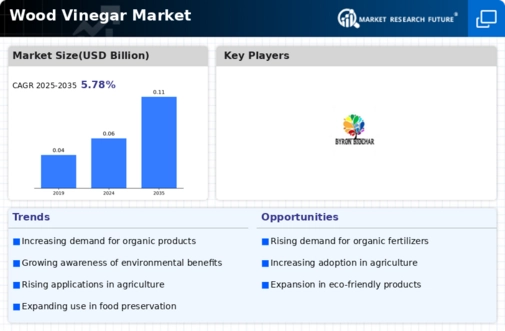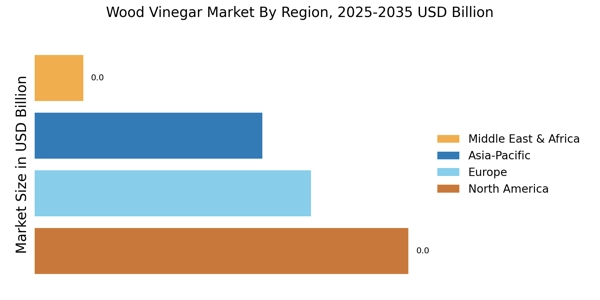Sustainable Agriculture Practices
The increasing emphasis on sustainable agriculture practices is a primary driver for the Wood Vinegar Market. Farmers are increasingly seeking eco-friendly alternatives to synthetic fertilizers and pesticides. Wood vinegar, derived from the pyrolysis of wood, serves as a natural soil amendment and pest repellent. This shift towards organic farming is reflected in the rising demand for wood vinegar, which is projected to grow at a compound annual growth rate of approximately 5% over the next few years. The Wood Vinegar Market is thus positioned to benefit from this trend, as more agricultural stakeholders recognize the environmental and health benefits of using natural products.
Rising Demand for Organic Products
The Wood Vinegar Market is experiencing a surge in demand for organic products, driven by consumer preferences for healthier and chemical-free options. As consumers become more health-conscious, the demand for organic fruits, vegetables, and other agricultural products is on the rise. Wood vinegar, known for its natural properties, is increasingly utilized in organic farming to enhance crop yield and quality. Market data indicates that the organic food sector is expected to reach a valuation of over 300 billion dollars by 2025, which could significantly boost the Wood Vinegar Market as more farmers adopt organic practices.
Regulatory Support for Natural Products
Regulatory frameworks increasingly favor natural products, providing a conducive environment for the Wood Vinegar Market. Governments and regulatory bodies are implementing policies that promote the use of organic and natural inputs in agriculture. This support is crucial for the growth of the wood vinegar sector, as it encourages farmers to adopt natural alternatives over synthetic chemicals. The Wood Vinegar Market is likely to benefit from these regulations, as they not only enhance market credibility but also stimulate demand among environmentally conscious consumers and producers.
Increased Awareness of Environmental Benefits
Growing awareness regarding environmental sustainability is significantly influencing the Wood Vinegar Market. As climate change and environmental degradation become pressing global issues, consumers and businesses alike are seeking eco-friendly solutions. Wood vinegar, being a byproduct of biomass pyrolysis, offers a sustainable option for soil enhancement and pest control. This awareness is likely to drive demand, as stakeholders recognize the potential of wood vinegar to reduce chemical runoff and improve soil health. The Wood Vinegar Market stands to gain from this trend, as more entities prioritize sustainability in their operations.
Innovative Applications in Various Industries
The versatility of wood vinegar is a notable driver for the Wood Vinegar Market. Its applications extend beyond agriculture into sectors such as food preservation, cosmetics, and bioenergy. For instance, wood vinegar is utilized as a natural preservative in food products, enhancing shelf life without harmful chemicals. Additionally, its antimicrobial properties make it a valuable ingredient in personal care products. The expansion of these applications is likely to contribute to the growth of the Wood Vinegar Market, as industries seek sustainable and natural alternatives to traditional chemical-based products.

















